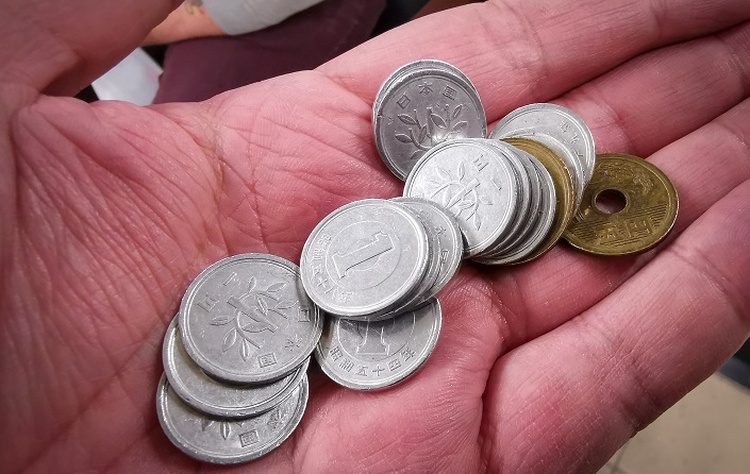お金と財産に関しては、聖書には時に極端で衝撃的なことが書かれています。私たちが聖書を開くのは、慰めを得るためであり、自分の世界観を責め倒してもらうためではないでしょう。神様には愛と恵みについて話してほしい。そして私たちには、お金と財産の話をさせてもらい、それに関しては自分が好きなようにしたい。
もし正直な心情を吐露するなら、多くの人がそう言うのではないでしょうか。
「御言葉のために時間を費やしてきたか?信仰を語ってきたか?性的純潔を守ってきたか?」。信者同士でこのように厳しく問い合う人もいます。しかし、「物質至上主義への闘いに勝てているか?」もしくは「物欲を駆り立てる、という意味で誘惑的な雑誌やウェブサイトを覗いたことがあるか?」と問うことはどれくらいあるでしょうか。
人は性に関する苦悶に対してすら、それなりにオープンですが、最終的に戦わなければならないのは物質至上主義です。借金からの抜け出し方を語る教会もあります。それ自体は良いことですが、借金がなくても、ケチであったり欲深いということはあり得ます。私たちは物質至上主義を深めるのではなく、物質至上主義を悔い改め、賢いスチュワード(管理者)になる必要があります。
イエスは私たちの心を理解されており、私たちのことをよくご存じです。イエスは弟子たちに、すべてを捨て去れとはおっしゃいませんでしたが、金銭と財産への隷従を断ち、自らを解放して主のもとに生きることは、確かに求められました。イエスは私たち皆が、二次的な財産を重要視するのをやめ、ご自分を最も大切な宝として大切にするよう求められたのです。イエスではなく他のものにより高い価値を置くなら、その人はイエスの弟子ではありません。
私たちがお金を使ってすることは、私たちの心の状態を表すだけではありません。イエスによると、お金ですることは、私たちの心が向かう先をも決定づけます。私たちの宝のあるところに、私たちの心もあるのであれば(マタイ 6:19-21)、私たちが宝を別のところに移動すると、心もそれについて行きます。この真理は強調すべきです。自分の心を置きたいところに、お金を置かなければなりません。
洗礼者ヨハネは、悔い改めの実を結ぶには何をすべきかと人々に尋ねられ、貧しい者と衣服や食べ物を分け合えと言いました。徴税人には余分に金を集めて着服しないように指導しました。そして兵士には、言いがかりをつけて金を巻き上げないように、自分の給料で満足するようにと言いました(ルカ 3:7-14)。
お金と財産についてヨハネに尋ねた人はいませんでしたが、彼の回答からは、物質的なものの扱い方に向き合わずに霊的な変化について語ることはできないことがわかります。
もし洗礼者ヨハネが今の私たちのところに来たとしたら、私たちのお金や財産に対する態度や行動について、どのような結論を導き出したでしょうか。私たちがキリストを真に信じる人々だと確証を持つでしょうか?それとも、世俗的で自分のことしか考えていない、物質至上主義のクリスチャン版に過ぎないと思うでしょうか。
マイクロソフト社役員のトリシア・メイヤーから、こういうメッセージをいただいたことがあります。「スチュワードシップこそ、クリスチャンの生活です。与えられたあらゆるリソース、この地上で生きる毎日、様々な人間関係、これらで何をするかという問題です。スチュワードシップの難しい課題は、自制心と意志を結集させ、お金という問題児を管理することです」。
スチュワードには、自分のものではない富や財産が委ねられます。スチュワードには、その所有者の益になるように、所有者の意思に則って、その富を管理する責任があります。神は私たちに命、時間、才能、お金、財産、家族、そして恵みを与えてくださいました。その委ねられたもの一つ一つについて、私たちが何をするかを評価されるのです。
スチュワードには、任じられた責任を果たすのに十分なリソースと権限が、所有者によって与えられます。金銭面でのスチュワードシップに関しては、標準化されたチェックリストが神から渡されているわけではありませんが、金銭面のスチュワードシップが実効性を持つための原則を示す御言葉が与えられています。私たちが取り組まなければならない原則です。責任あるスチュワードは、所有者である神の指示を仰ぎます。管理には、私たちが遙か及ばない見識と知恵を必要とするからです。聖書にはこう書かれています。「あなたがたの中で知恵の欠けている人がいれば、だれにでも惜しみなくとがめだてしないでお与えになる神に願いなさい」(ヤコブ 1:5)。
あなたは、スチュワードシップにおける難しい決断を下す(そして自分自身の心を評価する)際に、真の意味で神の知恵と力の付与を求めていますか。それならば、神に願いましょう。神はあなたを闇の中に放ってはおかれません。御言葉と聖霊を与え、あなたをお導きになります。
- 「あなたの神、主を思い起こしなさい。富を築く力をあなたに与えられたのは主である」(申命記 8:18)。
- 「主は貧しくし、また富ませ低くし、また高めてくださる」(サムエル記上 2:7)。
- 「富と栄光は御前にあり、あなたは万物を支配しておられる」(歴代誌上 29:12)。
スチュワードシップとは、これらの真理の光の中で生きることです。私たちは人生という短い期間だけ神が委託してくださったものを所有するのではなく管理するに過ぎない、と意識して生きることです。私たちのお金や財産の扱い方には、私たちがその真の所有者は誰だと本当に考えているか、つまり神あるいは自分だと思っているか、ということが表れます。
ジョン・ウェスリーは、お金の使い方を決めるのに役立つ4つの問いを残しました。最初の問いから残りの3つの問いが派生しているのがわかるでしょう。
- このお金を使うにあたり、私はそれを自分で所有しているかのように振舞っているだろうか、それとも神に託されたように振舞っているだろうか。
- 聖書はこのお金をこういうことに使うように求めているだろうか。
- このお金で買ったものを、神に捧げることができるだろうか。
- 「正しい者」が復活するとき、この出費のために神は私に報いてくださるだろうか。
神があらゆるものの所有者であると本当の意味で信じるのであれば、「あなたのお金と所有物で私に何をしてほしいですか」と定期的に神に尋ねるべきではないでしょうか。そうして、神の資産の大部分を、私たちより多くを必要としている人に回すよう神が求めていらっしゃるかもしれない、ということに心を開くべきではないでしょうか。
与えることに関する私の著作、『宝の法則 喜んでささげるための6つの鍵』を読んでくださった方とお話しする機会がありました。その人は成功し、収益を上げている企業のオーナーですが、神がなぜ彼に金銭面での恵みを与えてくださったのか、初めて悟ったと言ってくれました。いい車に乗り、いい家に住むためではありません。神の御国の建設という目的に捧げるためです。私は彼に、様々な宣教グループやプロライフ(生命尊重運動)プロジェクト、そして迫害されているクリスチャンを救う方法について教えました。地上の世界の資産をもっと整理し、永遠への投資ポートフォリオを拡大しようと決めた彼が立ち去り際に出した熱っぽい声を、皆さんにもお聞かせしたかったです。
彼はこのときの決意に従い続け、年々多くのものを捧げていきました。気乗りしないままだったり、罪悪感に駆られたりすることもありません。物質的な束縛から自由になり、大切なものに向かっていることに心を躍らせています。まるで畑に隠された貴重な宝を見つけた人のようです。「見つけた人は、そのまま隠しておき、喜びながら帰り、持ち物をすっかり売り払って、その畑を買う」(マタイ 13:44)。財産を捧げてしまった彼は気の毒でしょうか。決してそんなことはありません。彼が手にした宝も、喜びも、うらやましいくらいです。
神があなたに話しかけておられるなら、耳を傾けましょう。確信を得る瞬間というのはあっという間に消え去ります。神への従順を先延ばしにしてはいけません。神の玉座の前に立つときには、機会を逃してしまった、戻ってやり直したいと言っても既に遅しです。私たちの宝であるキリストの目を見つめて、私たちはどのように生きるべきだったかを悟るのです。ですが、神は私たちに御言葉を与えてくださったのですから、それを悟るのに死ぬまで待つ必要はありません。さらに神は、私たちが今そうした生き方ができるよう、聖霊を通して力を与えてくださったのです。
What Is Eternity-Minded Stewardship?
Concerning money and possessions, the Bible is sometimes extreme, sometimes shocking. When we come to Scripture, it’s for comfort, not for assaults against our worldview, right? Let God talk about love and grace, thank you. Let us talk about money and possessions—then do with them whatever we please.
Were we honest, that’s what many of us would say.
Some believers ask each other tough questions: “Have you been spending time in the Word? Sharing your faith? Guarding your sexual purity?” Yet how often do we ask, "Are you winning the battle against materialism?” Or, "Have you been peeking at those tempting magazines and websites? You know, the ones that entice you to greed?”
People are more open even about their sexual struggles than about battling materialism, which may be the final frontier. Some churches do talk about getting out of debt. I applaud that. But you can be debt free and still be stingy and greedy. We don’t need to become smarter materialists; we need to repent of materialism and become smart stewards.
Jesus sees our hearts and knows us well. He doesn’t call all disciples to give away everything. He does call us to take radical action that breaks our bondage to money and possessions, freeing us to live under His lordship. He calls all of us to dethrone all secondary treasures in order to elevate Him as our primary treasure. If we value anything or anyone more than we value Jesus, we are not His disciples.
What we do with our money doesn’t simply indicate where our heart is. According to Jesus, it determines where our heart goes. If our heart is where our treasure is (Matthew 6:19-21), then when we move our treasure somewhere else, our heart follows. This is a remarkable truth. If I want my heart somewhere, I need to put my money there.
When people asked John the Baptist what they should do to bear the fruit of repentance, he told them to share their clothes and food with the poor. Then he instructed tax collectors not to collect and pocket extra money. Finally, he told soldiers not to extort money and accuse falsely, and to be content with their wages (Luke 3:7-14).
No one had asked John about money and possessions. Yet his answers showed that John couldn’t talk about spiritual change without addressing how people handle material things.
If John the Baptist were to visit us today, what conclusions would he draw about our attitudes and actions toward money and possessions? Would the evidence convince him we are true followers of Jesus? Or would he see us as baptized versions of the world’s self-preoccupied materialists?
Microsoft executive Tricia Mayer wrote me, “Stewardship is the Christian life. It is about what we do with every resource given to us, every day we walk the earth, and every relationship we have. The difficult task of stewardship is mustering the discipline and will to manage the problem child called money.”
A steward is entrusted with wealth or property that does not belong to him. It’s his responsibility to manage that wealth in the best interests of, and according to the stated wishes of, the owner. God has given us life, time, talents, money, possessions, family, and His grace. In each case He evaluates what we do with what He’s entrusted to us.
The steward is granted by the owner sufficient resources and the authority to carry out his designated responsibilities. When it comes to financial stewardship, God hasn’t handed us a standardized checklist to mark off. Rather, He has provided us His Word with principles for effective financial stewardship—principles we have to wrestle with. A responsible steward consults the Owner, seeking His direction. This requires insight and wisdom far beyond our own. Scripture says, “If any of you lacks wisdom, he should ask God, who gives generously to all without finding fault” (James 1:5).
Do you truly desire God’s wisdom and empowerment in making difficult stewardship decisions (and evaluating your own heart)? Then ask. He won’t leave you in the dark. He has given you His Word and His Spirit to guide you.
- And you shall remember the LORD your God, for it is He who gives you power to get wealth (Deuteronomy 8:18).
- The LORD makes poor and makes rich; He brings low and lifts up (1 Samuel 2:7).
- Both riches and honor come from You, and You reign over all (I Chronicles 29:12).
Stewardship is living in the light of these truths. It’s living with the awareness that we are managers, not owners, of what God has entrusted to us for this brief season. How we handle money and possessions demonstrates who we really believe is their true owner—God or us.
John Wesley offered four questions to help decide how to spend money. Notice how the last three flow directly out of the first one:
- In spending this money, am I acting as if I owned it, or am I acting as the Lord’s trustee?
- What Scripture requires me to spend this money in this way?
- Can I offer up this purchase as a sacrifice to the Lord?
- Will God reward me for this expenditure at the resurrection of the just?
If we really believe God is the owner of everything, shouldn’t we regularly be asking Him, “What do you want me to do with your money and your possessions?” And shouldn’t we be open to the possibility that He may want us to share large portions of His assets with those whose needs are greater than ours?
I spoke with a man who’d read The Treasure Principle, my book on giving. He owns a profitable business and believes for the first time that he knows why God has blessed him financially. It’s not so he can drive nicer cars and live in a nicer house. It’s to give it to build God’s kingdom. I told him about several different missions groups and prolife projects, and ways to help persecuted Christians. I wish you could have heard the excitement in his voice as he walked away determined to liquidate more earthly assets and dramatically expand his eternal investment portfolio!
This man followed through, and has given more and more over the years. He isn’t reluctant and guilt-ridden. He’s been liberated from material bondage, and is thrilled to have gotten onboard with what matters! He’s like the man who finds priceless treasure hidden in the field, “Then in his joy he goes and sells all that he has and buys that field” (Matthew 13:44). Do we pity the man for his sacrifices? No! We envy him both for his treasure and his joy.
If God is speaking to you, listen. Nothing’s more fleeting than the moment of conviction. Never procrastinate obedience. Once we stand before His throne, it will be too late to go back and reclaim a lifetime of squandered opportunities. Gazing into the eyes of the Christ we treasure, we’ll know exactly how we should have lived. God has given us His Word so we don’t have to wait to die to find out. And He’s given us His Spirit to empower us to live that way now.
Photo: Unsplash




